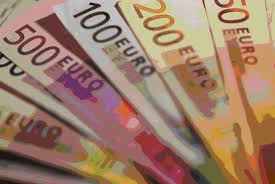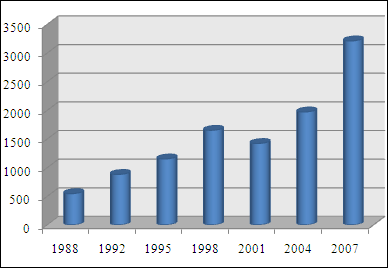Windows XP and Vista users will be given a choice by Microsoft as to whether they want to install Internet Explorer or one of its many rival browsers.
On July 24, Microsoft published a proposal it had sent to the European Commission, saying it could alleviate antitrust fears by giving european users of Windows 7 a choice of browser first installation.
However, the proposal also suggested giving XP and Vista users the same option, via Windows Update:
For Windows XP and Windows Vista users the Ballot Screen update will first be made available between 3 and 6 months after the adoption of the Commission's decision under Article 9 of Regulation 1/2003. For Windows 7, the Ballot Screen update will first be made available to users by the date of the general commercial release of Windows 7, or within two weeks of the adoption of the Commission's decision under Article 9 of Regulation 1/2003, whichever comes later.Each browser listed on the ballot screen would come with two links: one for direct installation and one for further information. "The Ballot Screen software update will be distributed and installable via Windows Update in a manner that is designed to bring about installation of this update at a rate that is as least as high as that for the most recent version of Internet Explorer offered via Windows Update," the proposal added.
Microsoft may offer tools to volume license users to stop the ballot screen being installed on PCs covered by the license, while still allowing standard manual installation of rival browsers on those PCs, the proposal stated.
In one of its recent announcements RBI has stated that come August all online credit and debit transactions will need to go through one more step before they can be completed successfully.
So apart from the details such as the card number, expiry date and the three digit CVV security code that needs to keyed in, it has been made mandatory for the card holder to provide further inputs that indicate a security code or some other data that will enable him or her to complete the transaction.
RBI has also made it compulsory for all transactions that exceed Rs 5,000 to intimated to the card holder through an online alert system.
Is there a forex currency trading method that will eliminate all risk and assure only income for the investor? If you think there is, then I regrettably have bad news for you!
Gamblers who sell their "system" to others are rarely the ones who are actually winning! They're the people who want to win and who have convinced themselves that their "system" will in time pay off, as long as they stick to it for long enough.
The same can usually be said about forex currency trading systems. The Internet is loaded with people selling some system or other. The ones to be cautious of are always very mysterious (the sites never explain the actual system, nor give any real information about it) instead the entire site is dedicated to "genuine, voluntary" testimonials about how effortless that specific system is, how quickly they learned it, and how affluent they have become by using it.
No "system" can guarantee success. It's illogical to do so! The forex market changes daily, and even though traders can use previous historical data and external factors to make "educated guesses" as to how the market will perform, they are still basically only guesses, hopefully with the odds in their favour if their theory is right. You can still lose your wealth, regardless of which Foreign Exchange system you are using.
Are all systems rubbish? Not completely. A few include good information and common sense hints. Have a keen eye; if they promise you the "holy grail" with no real proof, odds are pretty good that it's a scam!
You can by and large tell that a Foreign Exchange method is suspect simply by the way it is advertised. Web sites full of big fonts and exclamation marks are ones to be cautious of, including sites full of grammar and spelling errors, written in a plainly unprofessional manner. Before you spend money on any Forex currency trading system, you should consider the following questions:
1. If this system is so infallible, why haven't the authors acquired a fortune with it? If they claim that they are making a fortune, then why are they even wasting their time selling it?
2. Why are they selling a system regarding Foreign Exchange Trading instead of trading it themselves?
3. Why can't they find the money to pay for a proof-reader to check their site for errors?
Finally when researching forex currency trading systems, bear in mind: If it sounds too good to be true, it very likely is!

The currency band is a system of exchange rates by which a floating currency is backed by hard money.
A country selects a range, or "band", of values at which to set their currency, and returns to a fixed exchange rates if the value of their currency shifts outside this band. This allows for some revaluation, but tends to stabilize the currency's value within the band. In this sense, it is a compromise between a fixed (or "pegged") exchange rate and a floating exchange rate. For example, the exchange rate of the renminbi of themainland of thePeople's Replubic of China has recently been based upon a currency band; theEuropean Economic Community' "snake in the tunnel" was a similar concept that failed, but ultimately led to the establishment of the ERM and ultimately the Euro.

The foreign exchange market (currency, forex, or FX) trades currencies. It lets banks and other institutions easily buy and sell currencies.
The purpose of the foreign exchange market is to help international trade and investment. A foreign exchange market helps businesses convert one currency to another. For example, it permits a U.S. business to import European goods and pay Euros, even though the business's income is in U.S. dollars.
In a typical foreign exchange transaction a party purchases a quantity of one currency by paying a quantity of another currency.
The foreign exchange market is unique because of
- its trading volumes,
- the extreme liquidity of the market,
- its geographical dispersion,
- its long trading hours: 24 hours a day except on weekends
- the variety of factors that affect exchange rates.
- the low margins of profit compared with other markets of fixed income (but profits can be high due to very large trading volumes)
- the use of leverage




